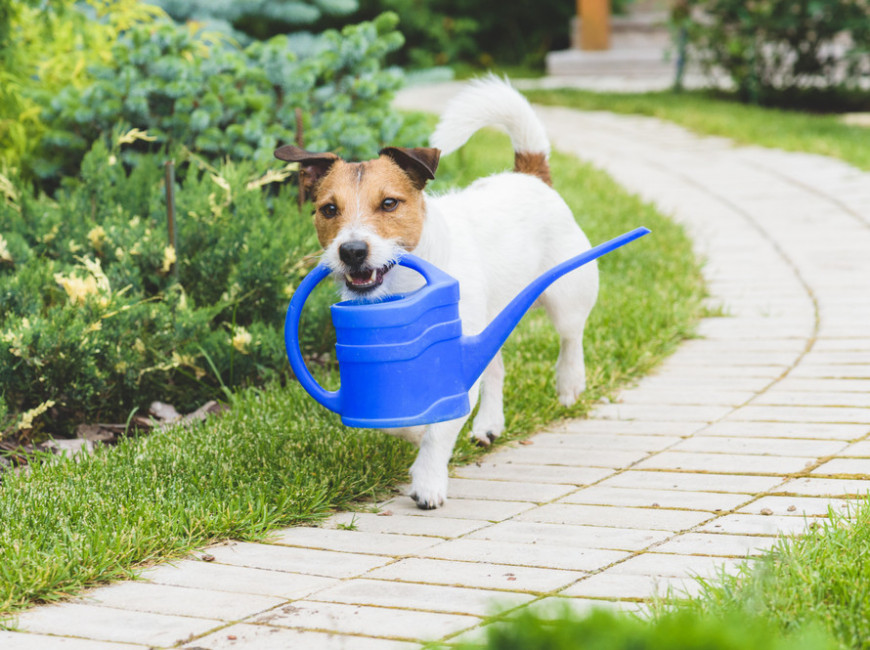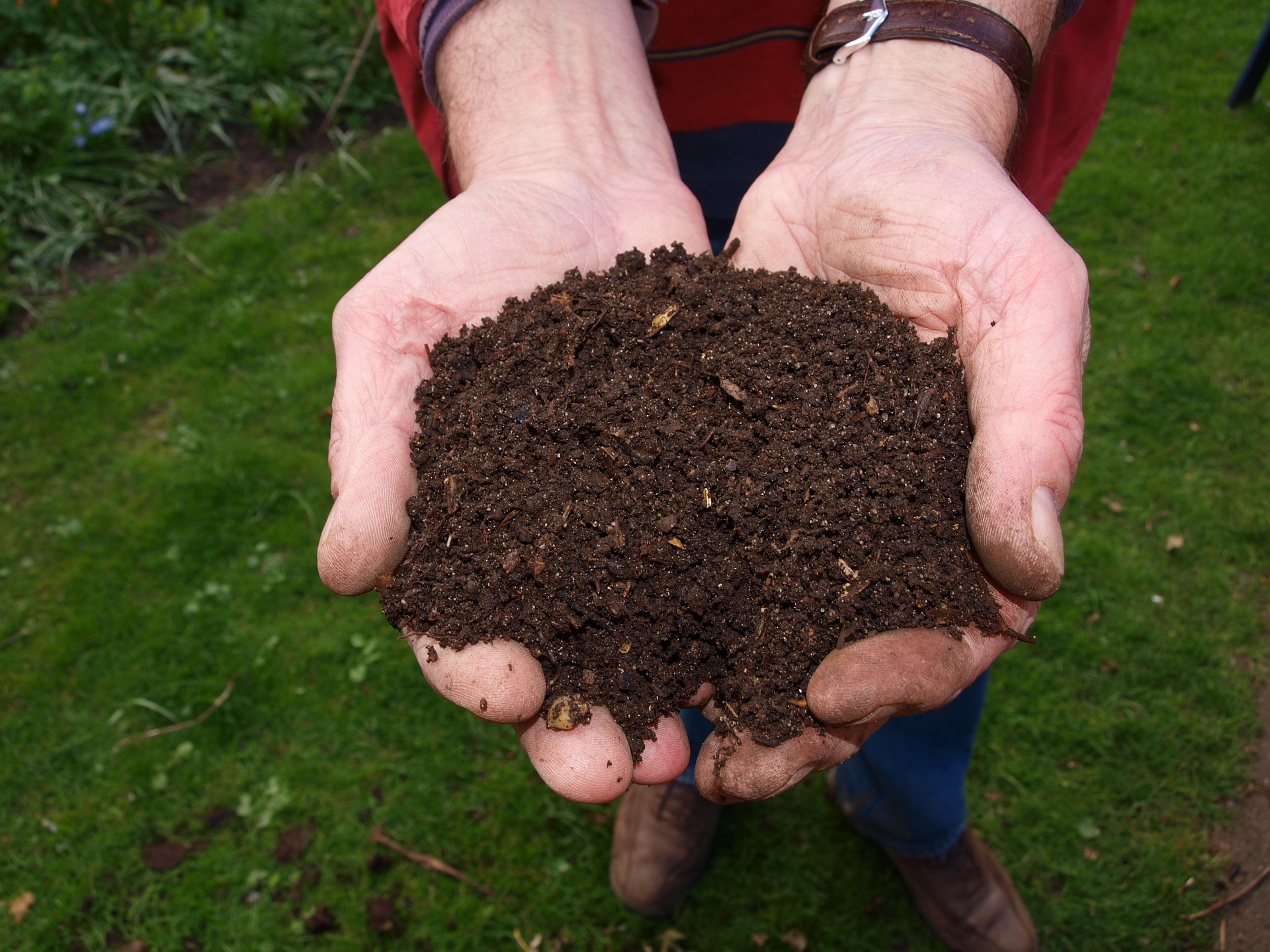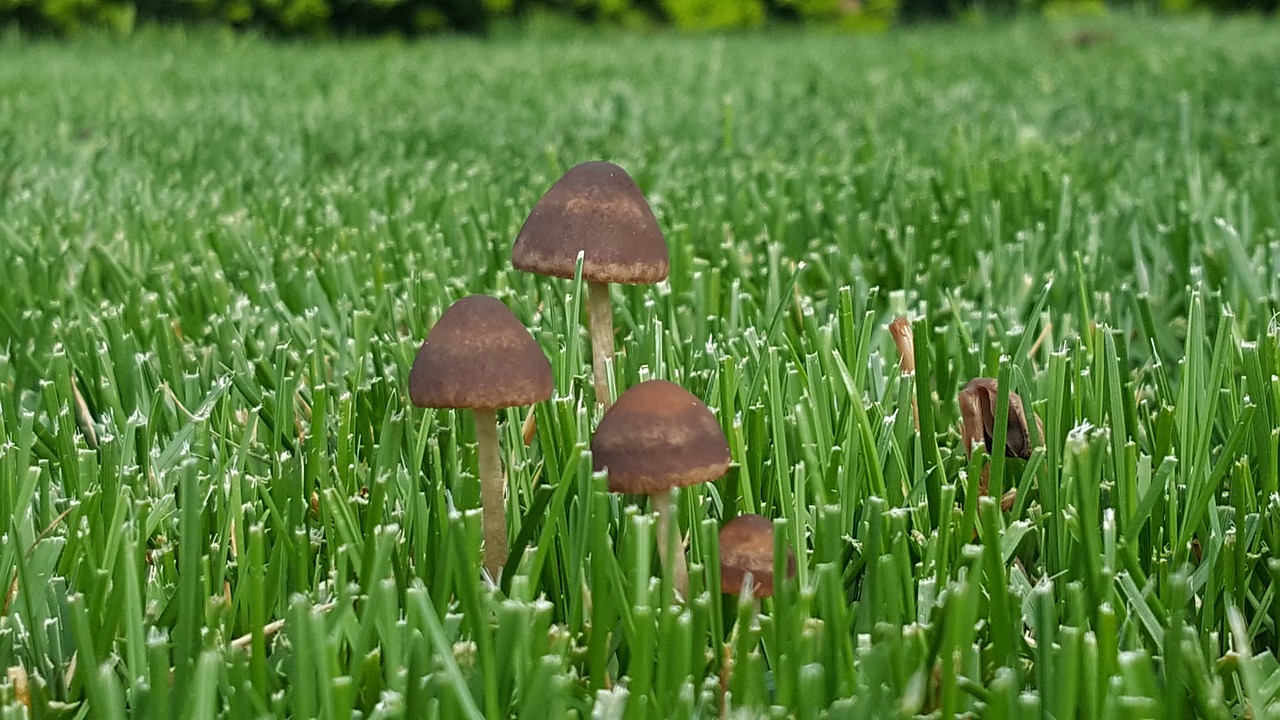Do you need help?

Beware of these common garden dangers for dogs
Gardens are the perfect place for dogs to exercise and have fun but even those that are fenced in can be potentially dangerous if common sense isn’t applied.
There are several popular garden plants and substances you should always protect your pet from. If you suspect your dog has eaten any of these, contact your vet or, out of hours, your nearest Vets Now pet emergency clinic or 24/7 hospital straight away. And remember, always try to take a sample of the dangerous item or substance, or a label containing its ingredients, to the vet.
These are some of the most common garden hazards for dogs. If you’re intent on creating a dog-friendly garden, keep these well away.
1. Compost
Compost is usually full of mouldy food and garden waste. Some of this can produce dangerous mycotoxins which are highly dangerous to dogs. Mycotoxicosis, which is poisoning by-products contaminated by fungi, can be fatal. Dog owners should always keep compost out of reach and seek urgent veterinary advice if they suspect their dog has raided the compost bin.
2. Fertilisers
Fertilisers come in granular, solid and liquid form. While most aren’t hazardous, some can cause sickness and diarrhoea if swallowed or irritate your dog’s skin if brushed against. Products with additives such as insecticides are often the most dangerous.
3. Weed killer
Many weed killers contain glyphosate which can be dangerous if swallowed, licked or brushed against. Dogs who consume a significant enough amount may suffer breathing problems, heart rate issues and convulsions. If you plan to use weed killer, make sure your dog is safe inside to avoid any problems.
4. Conkers
Conkers contain a toxin called aesculin, which is found in all parts of the horse chestnut tree, including the leaves. While dogs normally need to ingest several to suffer severe poisoning, our emergency vets regularly see cases of conker poisoning in dogs during autumn. Pixie the four-year-old terrier needed emergency treatment after being poisoned by conkers put down to deter spiders.
5. Acorns
Cases of acorn poisoning in dogs are common in autumn and winter. The toxic ingredient in acorns is thought to be tannic acid, which can cause damage to the liver and kidneys.

6. Insecticides and pesticides
Insecticides and pesticides are typically used to get rid of so-called garden pests. But many contain dangerous chemicals such as metaldehyde or disulfoton, which are both very toxic to dogs. Read the instructions carefully and don’t use if there’s a potential risk.
7. Lawn feed and moss killer
These products usually include fertilisers, weed killers or ferrous sulphate (iron) which kills moss. All of these have the potential to harm your dog’s skin or cause gastrointestinal problems. Those that contain iron may also cause iron poisoning.
8. Daffodil, lily and spring crocus bulbs
Several popular garden plants are poisonous to dogs, as this comprehensive database shows. But, often, it’s the bulbs that pose the biggest risk. For example, daffodil, lily and spring crocus bulbs are all highly toxic. Symptoms of plant or bulb poisoning can include vomiting, upset stomach and heart and kidney problems. Read how Riley the playful Labrador had a lucky escape after eating a daffodil.
9. Mushrooms and toadstools
While some mushrooms are edible, others are highly toxic, and it’s often difficult to tell which is which. Symptoms of eating poisonous fungi can vary dramatically but may include sickness, hallucinations and even kidney or liver failure. Dog owner Tony Sutton discovered the hard way while out for a walk with pets Shep and Sweep.
10. Cocoa mulch
This contains theobromine – the same poisonous ingredient that’s in chocolate. It has similar properties to caffeine and can cause vomiting or diarrhoea and possibly muscle tremors, seizures and elevated heart rate. There have been several cases of dogs falling ill after eating cocoa mulch.
11. Stones from Prunus species
Believe it or not, the stones and pits of plums, cherries, apricots, and peaches contain cyanide. As a result, these are dangerous if crushed or broken before being eaten. The stems and leaves can also be toxic. It’s worth bearing in mind that larger stones can cause obstructions if swallowed whole.

12. Slug and snail pellets
Metaldehyde-based slug and snail pellets are among the most dangerous and common poisonings our vets see. Ingestion can cause severe poisoning and signs often occur within an hour. One dog who did not survive swallowing slug and snail pellets was Japanese Akita Boris. He tragically died within hours of coming across the pellets during a walk in the park.
13. Toads
Toads produce venom through their skin when they’re under attack and toad venom poisoning can be fatal if left untreated. The toxins can cause dogs to foam at the mouth, vomit and show signs of distress such as pawing at the mouth and eyes. Playful Buddy thought his luck was in when he chanced upon a lively toad in the garden but he got the shock of his life when he picked it up.
14. Mouldy bird food
Bird food that’s been ignored and turned mouldy, such as fat balls or bread, can contain mycotoxins which are highly dangerous to dogs.
15. Food waste bins
Beware if you keep your food recycling caddy in the garden. These can also contain potentially poisonous mouldy food. Dog owners should always keep food waste well out of reach of dogs and seek urgent veterinary advice if they suspect their dog has eaten mouldy food or raided the food recycling bin. Poor Claude the French Bulldog tragically died after eating from a food caddy kept in the garden.
What to do if your pet has been poisoned?
Owners who suspect their dog has been poisoned should telephone their vet immediately or, out of hours, their nearest Vets Now pet emergency clinic.
Vets Now is open through the night, seven-days-a-week, and day and night on weekends and bank holidays, to treat any pet emergencies that may occur. All of our out-of-hours clinics and 24/7 hospitals have a vet and vet nurse on site at all times.
